Last week I was in Luxembourg at Foodsharing – sharing food without borders. This is some text I wrote on the way back home. Be warned, it is a long and rambly stream of consciousness.
I had a lot of uncertainties about attending. I knew it was more focused on the countries around Luxembourg. Belgium, Luxembourg, and Germany… maybe Austria, Netherlands? And I’m clearly not from there, in the UK. But my work on Karrot means I am involved. We support groups that do foodsaving in Luxembourg, Belgium, Germany, Austria… and more. So it feels very relevant.
Additionally, it was due to be a time when 3 people from our Karrot team would be in person together! We are a very remote team, often with our core team members in UK, Sweden, Greece, and Germany. Almost as far as you can get away from each other and still be in Europe (the geographical entity, rather than the political one). After much back and forth I did commit to it.
The journey to get there was a full 24 hours for me. I don’t fly, and trains are too expensive, so long distance bus it was. I actually like this mode of transport, and being in the “in between” space of the journey, alongside all the other people making their journeys.
I want to jump to the end a bit, and work my way back. There is quite some appetite for cross country food saving collaborations. This is really exciting for me, as it was part of our remit as the grandly titled “foodsaving worldwide” project, which has since sort of run out of steam, but continues in some form within the Karrot team. I feel the time is right for this little bird to spread it’s wings and join the wider world. I know many foodsaving groups in cities across Europe have a small core of committed people, surrounded by a wider network of less committed people. Those committed people feel great when they get together with other people who share their passions. It’s lovely to be connected in action with people local in your area, but also lovely to be able to spend time with people who share your bigger dreams and spirits.
In person events like this (have to come back to what “like this” means, it’s not all events) really reinforce my experiences that there is no substitute to spending time together with others face to face. “Like this” probably means situations where our wider, or whole, selves can show up, where we will do some tasks together (e.g. cooking), where there is an aspect of co-creation, we sleep on site (so have the liminal times of day together too), and perhaps where people attend from their own intrinsic motivation. Conversely, a work event that staff are compelled to attend, that is laid on by a professional event team where the staff members merely attend, and the scope is limited to a professional topic, and we retreat to hotels afterwards, would likely not qualify as an event “like this”. Co-created whole self celebrations?
I did not show up with a goal, or a particular focus. The connection of the Karrot team was one of the more tangible aspects, but unfortunately Vasilis ended up in hospital as he was about to begin his journey here (he is OK now!), so that aspect did not materialize as expected, and that was OK. I am not the PR team for Karrot, and I do not wear a “hat” when I come to events. I come as myself and all that entails. I did not propose to run a session as I am tired of writing presentations to give in advance to a hypothetical audience. I do not want to engage in performative roles.
At some point during the event I regretted not setting a clearer intention for my participation. I have been trying to live a more intentional life in general, and it often means I can get a lot clearer about how I am wanting to engage in given scenarios, and avoid just going with the flow, which might not be my flow.
In my opening check-in round, I felt like sharing some of the anxieties I felt in my body. This was part of my sense of avoiding performative roles. I shared the anxiety I felt in my body. My uncomfortableness of having just filled in a form where my nationality and languages were simple England and English (not a good look!). And I rambled a bit. As the round continued I had all these others things I could have added popping up in my mind, more about Karrot, and potentials of our connections at this event. I didn’t actually know this sheet with questions on, and this round were going to be part of this session, and so I did not have time to prepare in my own head space.
I am getting more aware of the neurodiverse aspects of myself, and one of those is that I benefit immensely if I know these kind of questions/structures in advance, so I can prepare something. Perhaps this is just encouraging the performative aspect to come out, but it helps reduce my anxiety, and helps me to focus on what others are sharing, and perhaps then I can share a more authentic version of myself, rather than the panicky version.
I actually felt terror in my body as I looked around the circle at all the people, my mind racing trying to model each person, but it was too much. My mind was racing, and my body telling me something! Fortunately, this is not a catastrophic event for me any more, as I have learnt to be gentle, and present, and give those experiences the space they deserve. This is part of the whole self approach for me. All of these parts belong to the event. All the parts of all of us belong here.
Often the quiet voice inside of somebody has a deep insight. The loud voices also might have great insight, but those insights are usually more commonly known. Sometimes people do not know what insight their body is trying to share with them, or it cannot be easily turned into a coherent set of words, I welcome those nonverbal bodily insights too, in whichever form they might want to communicate themselves.
Let’s pull out of that train of thought for now, and to something that got really clear to me at the event. It’s not about saving food.
What did you say?! This was explicitly an event about foodsharing (or foodsaving) groups and their collaboration!
I don’t believe saving food is “enough” (and yet paradoxically everything we do is always enough, no shaming here please). What I mean is that we could save all the food in the world and still be heading for mass extinction events, climate breakdown, fascist governments, deepening social injustice, and generally sick societies. In the phrasing of some wise people:
Transition is inevitable, Justice is not
I believe we benefit immensely if we can take in the deep interconnectedness of everything. That is both a spiritual and scientific perspective. If we break every topic up into it’s narrow constituent parts and tackle them individually, I believe we will not get far. The climate crisis cannot be reduced to co2 emissions. Fixing our food systems cannot be reduced to ensuring all the excess food is consumed.
What captivated me about foodsharing originally, and still does today, is the power that people can raise amongst themselves when they organise. Foodsharing.de has been co-ordinating more than a hundred thousand people with very little money involved to perform relatively complex and efficient operations. This is amazing. Let’s not forget that. There is a software platform that has been developed by combining little fragments of time from many contributors (and some bigger fragments…) that facilitates this co-ordination. This is revolutionary to me and deeply inspiring.
To me, it always brings to question “what else can we organise in this way?”. The potential is that people can use their eyes to look around where they are, and see what needs doing, from their heart, from their inner senses, and when this is more than they can do alone, they seek people who also see the same things that need doing, and start to work together. The potential is that we re-learn how to directly work together, without being told what to do from a distant authority. That we become alive again.
This work is hard as we have do undo a lot of things our sick society has taught us. I believe we need to re-orient around the concept of love. What would love do? After reading bell hooks “All About Love”, I am meaning the definition she selected from M Scott Peck:
Love is the will to extend one’s self for the purpose of nurturing one’s own or another’s spiritual growth.
M Scott Peck
Not the chance love of cupid that we “fall” into. A love of choice, commitment, knowledge, and nurturing.
Ok, let’s get me back on track again! About the event right?
Well, this is another aspect of “these types” of events. We can expand the topic as we desire. Perhaps not in the structured workshops, but in the spaces between. I spoke with people at the event about love, and neurodiversity, and many other things. I think we must allow these spaces to expand to allow our curiosities to blossom.
Over the time I have been working on karrot, sometimes a sense of competition comes up between foodsharing.de and karrot.world. They are both software platforms that support groups to organise foodsaving activities. I think we need to get away from the competition and monopoly paradigms from capitalism, but that they easily re-emerge, including in myself. We are woven with threads of domination and monopoly. We have a society that emboldens our darker desires to control and dominate, we make those people the boss and worship them and their subjugation of other people and exploitation of their labour. We do not escape these tendencies by doing “good” activities, or working without profit, or money, these tendencies will emerge wherever we go.
We need new metaphors, and I always come back to natural ecosystems for this. They command respect. They have been there before we were, and will likely be there long after we are gone. We are part of them, they are our bigger whole. Or our larger body, as Joanna Macy says.
In the face of overwhelming social and ecological crises, this work helps people transform despair and apathy into constructive, collaborative action. It brings a new way of seeing the world as our larger living body. This perspective frees us from the assumptions and attitudes that now threaten the continuity of life on Earth.
Joanna Macy – https://www.joannamacy.net/main
I did a little drawing of foodsharing.de and karrot.world. The software platforms. Each project is a tree. Each tree grows in certain ways due to it’s type and the specifics of it’s location, the soil, the atmosphere, etc… each tree makes sense when you understand it. So foodsharing.de is a lovely tree! Many animals shelter amount it, many birds nest in it’s branches, and it’s roots reach down, binding it to the soil. It produces much fruit, and one of those fruits was Karrot (a tree producing a carrot???). This was the story of yunity, which was lovely to retell a few times at the event, it was a lifechanging journey for me that. I won’t retell it here to attempt some semblance of brevity.
I did a drawing whilst I was still in Luxembourg:
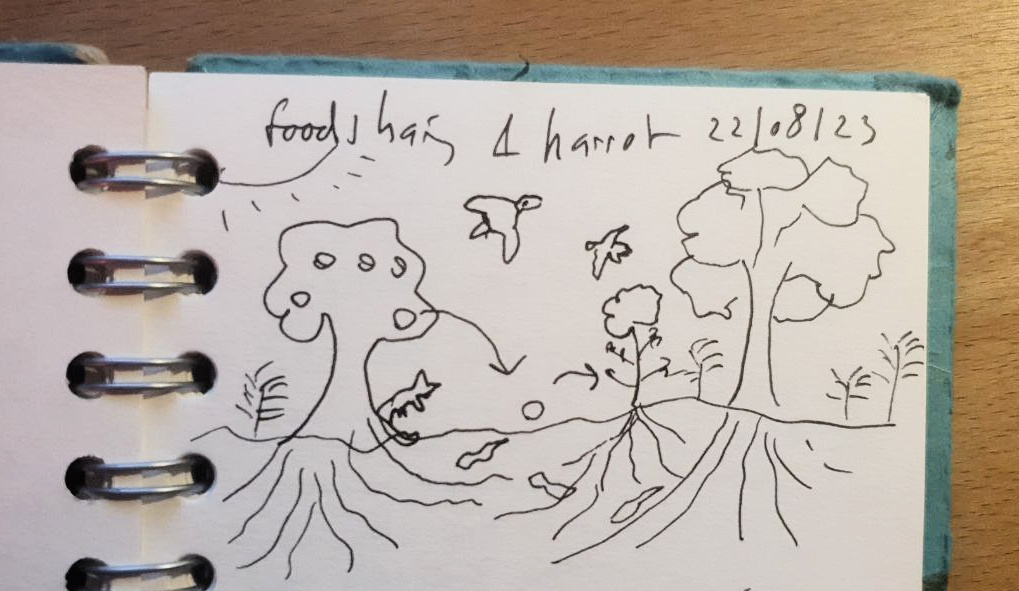
The monopoly and domination paradigm would have these two trees in competition, for light, for nutrients, for inspects, pollinators, etc. But this is not how natural ecosystems work. Competition can be part of it, but it is not the essence. No tree stands alone. The roots are entwined, the birds fly between the trees, the insects pollinate, the seeds spread, the nutrients are shared. The more we learn about natural ecosystems the more wondrous they reveal themselves to be. I think this is how we need to see our “competing” software projects.
As it’s not just about karrot or foodsharing software, there are many many platforms seeking to bring us to this thriving regenerative way of life. They all get it. In parts at least. We must not reproduce domination mindsets here, or we will never create thriving ecosystems.
With karrot I am often looking at other platforms, sometimes with envy, or a resigned sense that they are doing something better than we are, or a frustration that they are producing our efforts without understanding them, or whatever else. But this is all OK. The path is winding and will have much duplication and redundancy. We are not seeking a unified system with a central authority. It’s OK if the same patterns slowly evolve independently.
I think we can do more here though. To think what are the birds from my metaphor, what are the roots, what is the soil, the air? Of course they won’t have exact analogies but let’s see where we can go.
I would like projects who are animated by similar spirits to be able to speak to each other, I have seen how peoples eyes light up when they sit next to someone else who is encountering similar situations, across projects, across countries, across cultures. We must not make our software projects become silos that prevent these encounters.
Software silos is the behaviour of capitalist tech monopolies. This is what Facebook do. They want you to stay inside facebook. They want facebook to be “the internet”. This is not good. It will not bring us into thriving. It will not bring us justice, or planetary health. These approaches are verifiably toxic and destructive (e.g. that time they substantially contributed to a genocide against the Rohingya people).
Software projects are tools. To be used, or discarded as people can best sense. Let it never be that people are withheld from experiencing this wondrous joy of connection because they have found different tools on their journeys.
I write software, and I need to also know which line of code I need to write next to take a step towards these dreamy visions. This work is full of paradox and compromise. This is where we get to the messy business of life.
One of the sessions at the event was an teasing introduction to dragon dreaming, which I can crudely reduce to 4 steps: dream, plan, do, celebrate. Or the lovely idea from Daniel, who co-led the session, to start with celebration, to allow connection to deepen, before we start to share our dreams. This is actually how I think the event was for me, a celebration of all that we have done so far, and all that we are, and for me, and many, a celebration of the wonder of the natural environment around the venue. For me, it has opened up a dreaming phase again. Let’s dream together!
We have so many methodologies to help our organising, dragon dreaming, sociocracy, non-violent communication, and many more, and I think we could do well to make use of these, so we don’t silo those activities. I think we need to weave their wisdom into our daily practices, which sometimes means stepping back from the daily rituals of our work.
So, I peak a little into a “plan” mindset of this software ecosystem evolution. And that comes in the form of ActivityPub, or the fediverse, or “mastodon” (if that helps you to understand what I’m talking about). Perhaps if each software project is speaking ActivityPub, the messages passing through it’s protocols are the songs of the birds in the trees, the sharing of the nutrients through mycelial networks. Maybe it can be simple. A software project that aims to support organising in service of life and love, can include a place for writing messages that reach our into the ecosystem of the fediverse, where other projects can receive them, and respond. This infrastructure already exists.
The hard part I have always thought with socio-technical innovation is making things that people can understand. The fediverse already has many of these understanding problems, “why do I have to choose a server?” is the perennial question in the fediverse, and the followup “well, which server should I choose?”. I think this is a real problem. It’s not clear what it means to join one server or another.
I think this problem has a solution though, at least for the types of groups I am thinking of. You join a group, or community, like an actual in person one, that does stuff. In your local area. Or could be online.
I guess this is where I reveal the scope of my interest, I am not very interested in subreddit communities, or discord communities, or their federated/decentralized equivalents, I am interested in communities of organising collective action, as I described earlier, where we look around our own sense of what needs doing, see we can’t do it alone, and we do it together (Do It Yourself (DIY) -> Do It Together (DIT?)).
I am sure there are subreddits and discord communities that are doing this too, they are only tools after all, so I don’t mean to be exclusionary. I know though a lot of people cannot engage with reddit, or many other what I might call “online first” platforms. They want to minimise their computer use, as computers are emotionally oppressive to them, or they are just sick of using them at work all day.
So, back to the vision, so a simple example, and back to foodsaving, you walk down the street and see a flyer on the lamppost asking if you horrified by the level of food waste, you are! Great! You can attend the next open meeting. At the meeting there are nice people who serve you up some tasty saved food, and you feel the love and the passion, and want to join this group of lovely welcoming people, there are some formalities, you need to sign up on a digital platform, and get given the link, or sent an email, or something. You are in!
You didn’t have to choose a server, you chose a group, and you had your full range of sense available to you (do I like the vibe of the people, do i feel good around these people?). And besides, there weren’t really many other options… maybe in a busy city there are a few different community projects, but you can only see so many flyers and only attend so many open events. Perhaps you just went along because your friend said it was nice. You choose the people, and the people choose the tools.
If the tool gets very confused, and it probably is a bit confusing as you haven’t used it before, and you might hate using computers, you can ask your friend, to sit next to you, perhaps with a cup of tea, and click through together. Even if the tool is a bit crap, you can probably work out how to get what you need from it.
Now, sometime later, you learn about all the different tasks you can do in your group. Some people love the outreach/connecting roles, and love talking to other people who do similar thing, or you want to share your learning, so you learn how to use the section within the tool that is for that, I don’t know what it’s called, “outreach”, “collaboration”, … somebody good with words might be able to find a word (maybe the peopleverse is good?), and this opens up a whole world. There is much to learn, resources to be shared, stories to be told. Great 🙂
This is what I’d love to build!
Sorry, I jump around a lot, but I want to get back to this “foodsaving is not enough” perspective. Within Karrot we realised the tool we are building has very similar features that you might want for many other types of organising, so we have been undergoing a process of “generalization” for some time now. The idea is it can be configured to work exactly as you need for doing foodsaving, but it is written one level more abstractly. Originally we had “pickups” in the database, now we have “activities” that can have a type “pickup” (or “meeting“), and you can configure these types yourself. So maybe for your group you have “nature walk“, or “apple pressing” (with a nice apple icon 🍎🍏).
And, as my mind is coming to sleepy time (the coffee is wearing off), I jump to another topic.
I was thinking to write this as a write-up about the event, but I haven’t actually written a lot about the event. But I think that is good. A bit like this saying:
If you want to build a ship, don’t drum up people to collect wood and don’t assign them tasks and work, but rather teach them to long for the endless immensity of the sea.
Antoine de Saint Exupéry
I mean, I think the skills are also important, but you get the point. So for me, this event has taught me to dream of the ocean once more, and that is a wonderful success. I don’t know who will share my dreaming, as this post is perhaps a rambling incoherent mess.
I could put my “reviewer” hat on, and say the sleeping situation was not the best, as people come in the room at different times, and the door is creaky, and the non-foodsharing food was a bit…. “school canteen”, and the perimeter security of the venue was a bit prison-like. Maybe this is another post though, let’s not miss the forest for the trees.
Oh, and the food! Was great to be back in a foodsharing abundance vibe:
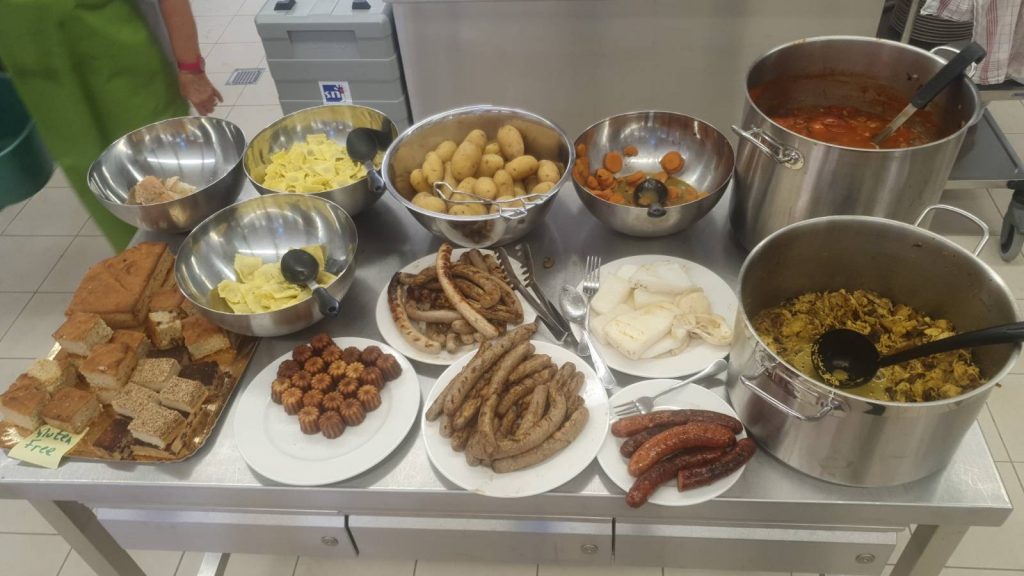
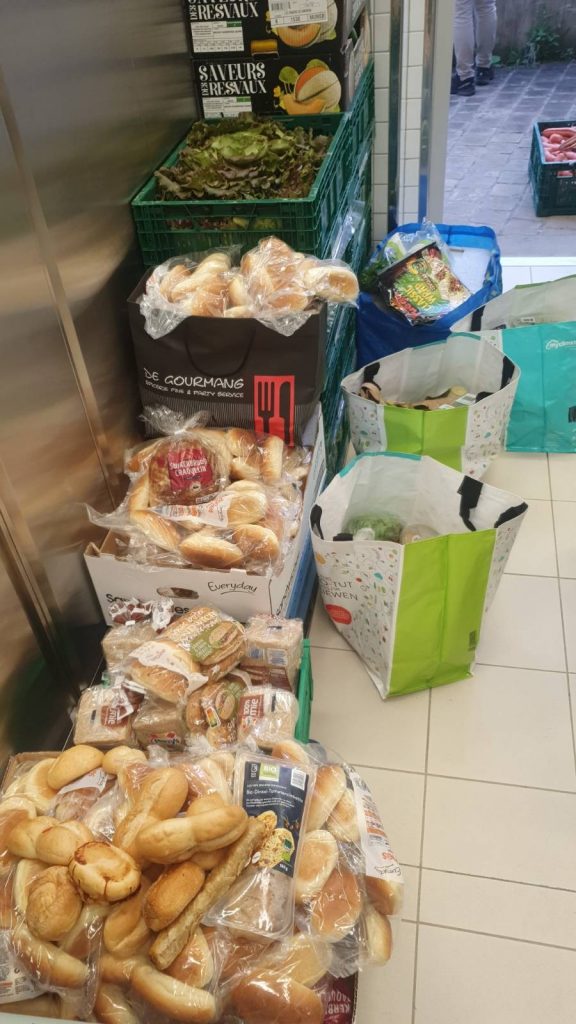
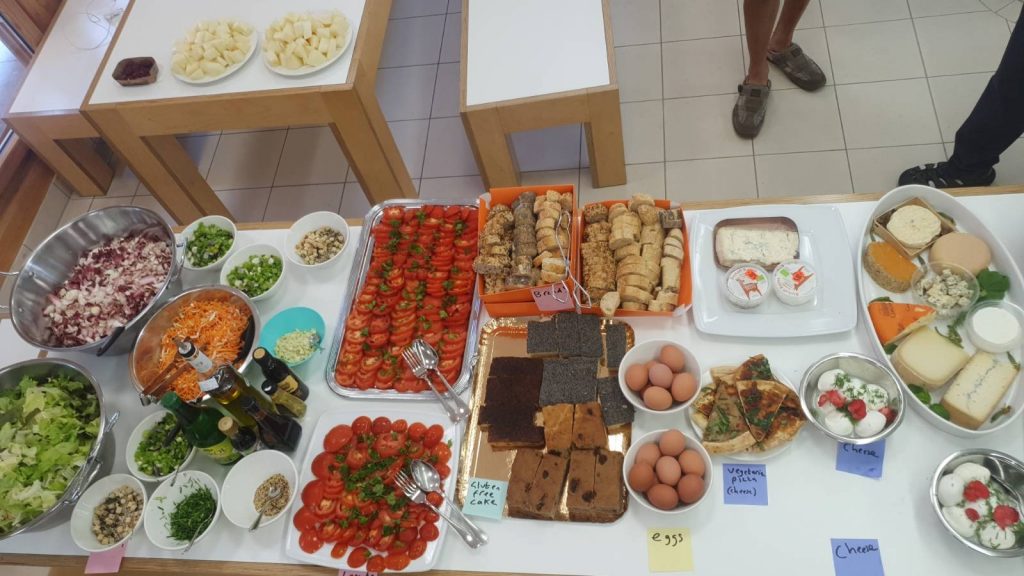
So I thank the organisers immensely, as I know behind the scenes of everything there sadly exists overworked, under compensated, and underappreciated people. I see you! Or, maybe I don’t, but I appreciate you, whoever you are! Actually, I think I do know who you are in this case. At least some of you.
I want to get really concrete (or tangible, as concrete is not very friendly to the environment) now, to come down from this ramble:
- everything onward from here starts with talking more, one-on-one, formally, informally, whatever, the whole lot
- contact Karrot at info@karrot.world
- write on our forum https://community.karrot.world
- join our Karrot Team & Feedback group on karrot
- contact me personally at hello@nicksellen.co.uk
- write a comment below
- I would love to “handover” our foodsaving worldwide experiences, histories, knowledge, and point to somewhere else this can happen
- we have foodsaving.world with some info
- we have foodsaving.today with stories of foodsaving
- we have a foodsaving category on our karrot forum with template agreements, etc…
- I would love to contribute to a new inter-project collaborative foodsaving network
- … but not be in the centre of it
- I centre myself in karrot, as a tool
- more karrot things
- for those that use karrot, or would like to, I would love to get help to restart our karrot community cafe calls (monthly open sessions)
- I would love to have a “tech contact” person in each karrot group that can be the interface between karrot project, as groups that use karrot
- I would love to support any groups or regions to set up their own instance of karrot
- I would love to talk about and evolve this ActivityPub vision
- I would also love to be a part of co-creating the next in-person event
- can we have a multi week event?
- am I wanting to rekindle the yunity spirit? (oh yes)
- can we have more singing?
- can we play music together?
- perhaps we can dragon dream together over multiple days
Sorry for this probably totally overwhelming post!
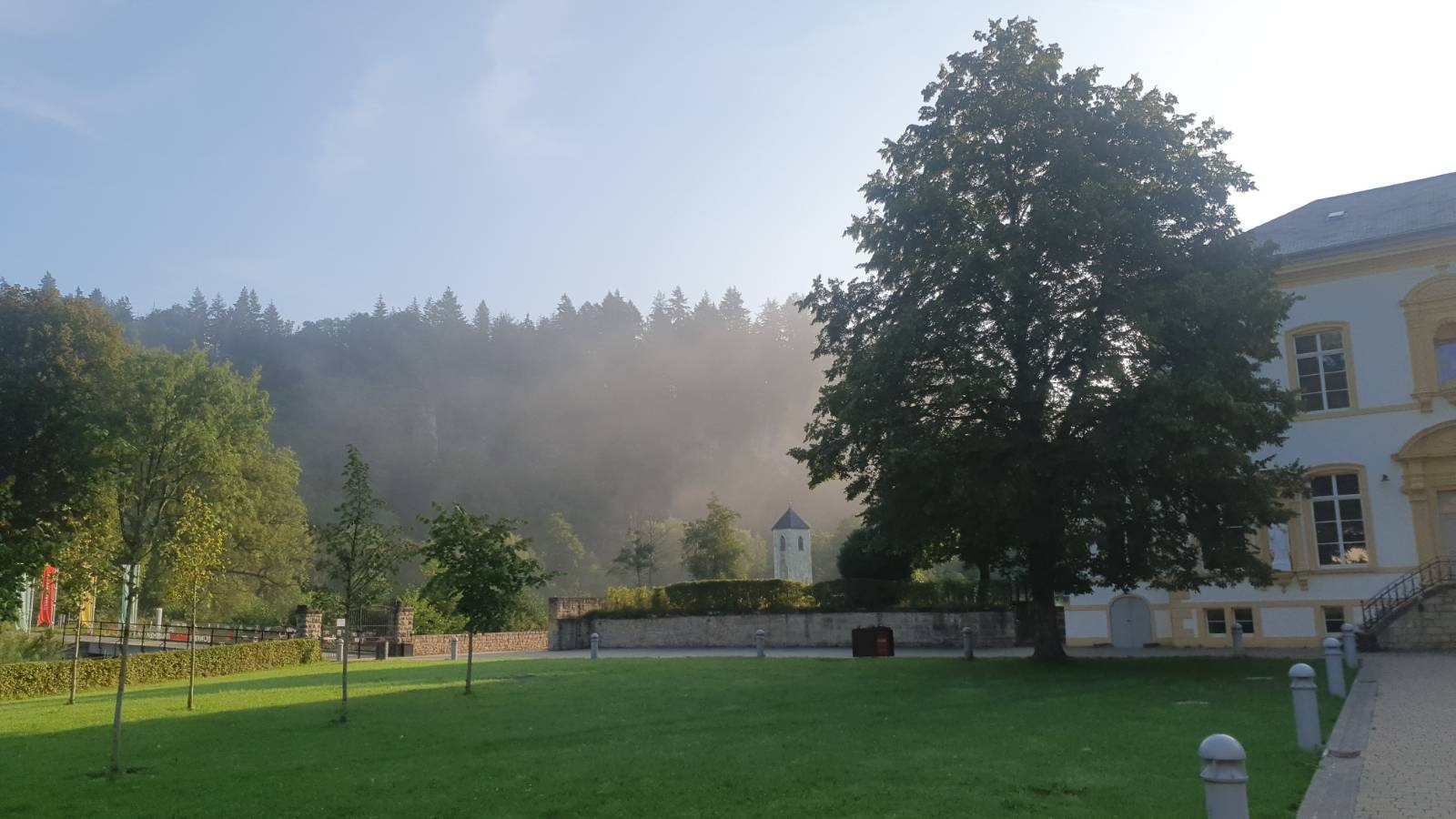
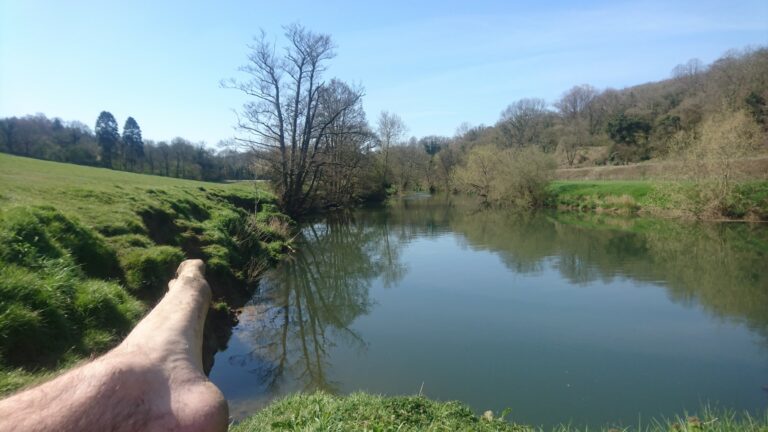
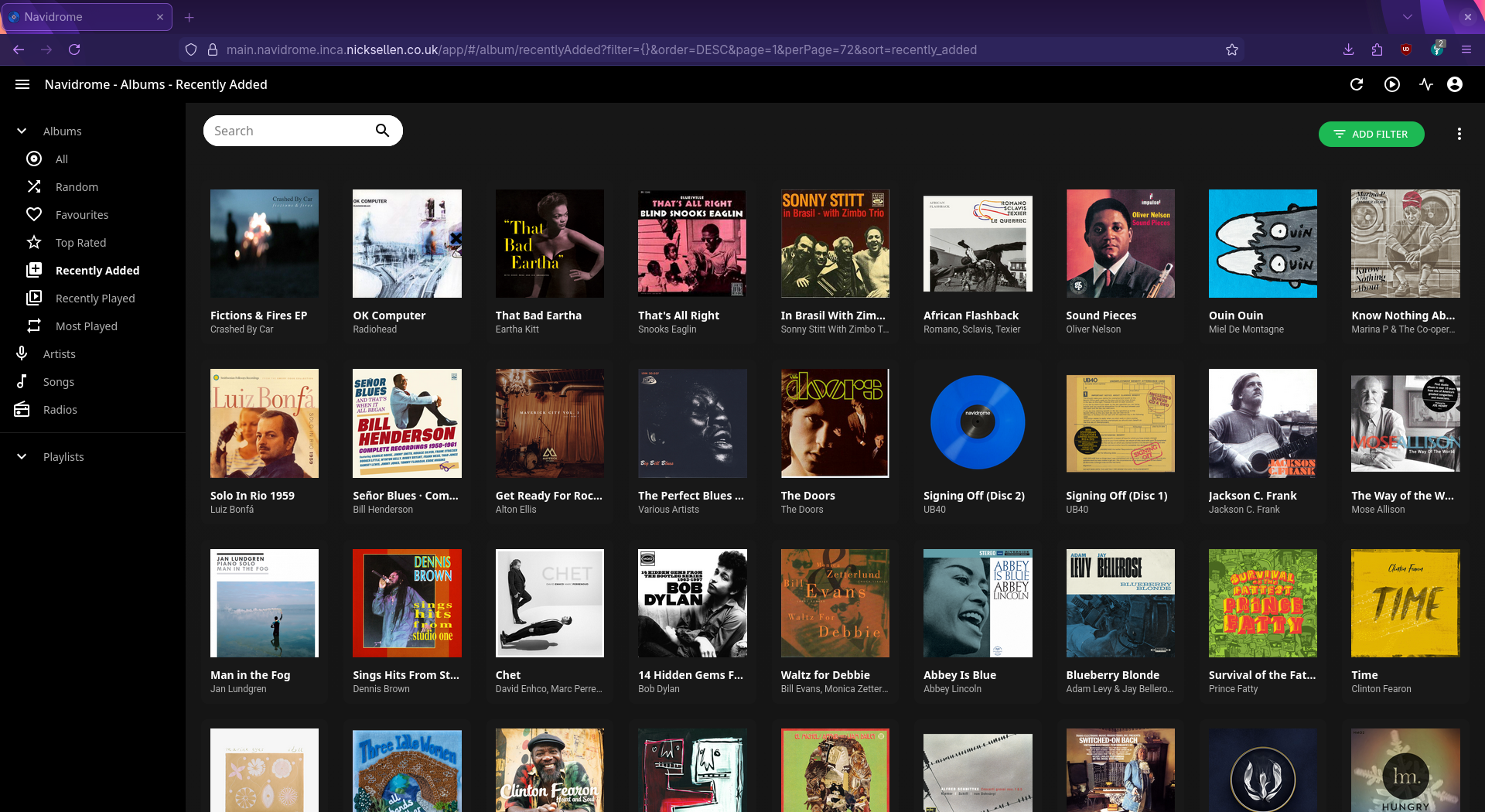
Read it all and it was fun! I had no problem with stream of consciousness, jumping-from-one-topic-to-another kind of text. It still has its nice flow. But also makes me wonder if it is not because we’ve talked so much about all of these topics before so it’s much easier for me to understand, to relate to…
I’d usually like to discuss the content, but the reason I’m reflecting on the form here is because it brings me back to that idea of a blog or collection of texts that connect lived experiences and storytelling with broader reflections about community organising, collective action and just transitions. There are many elements there in text! If it were to reach a broader “audience” (again the performative aspect, but hey, isn’t life performative even when seeking to express our genuine selves?) then it would probably work better with more focus on fewer topics. I don’t mean to play the editor here. 🙂 I’m just thinking out loud what it would mean to collect texts and put it out there for people to get inspired and/or develop their critical thinking. Reading your post as it is was very enjoyable!
So to the content and not extending on it, here are the topics that interests me the most:
– it’s not about food saving (only), it’s only an expression of something bigger!
– the ecosystem paradigm of digital tools, how they can be co-created, their evolution in diversity and how they are connected to lived social experiences offline
– the design of events that bring people together and inspire them to do stuff together
Whey! I’m glad it was digestible! I realised that if I try and revise and polish I never publish (I have a bunch of drafts to prove it too…).
I think it’s nice to collect texts on those topics, community organising, collective action, etc… I do like the “whole person” approach as much as possible, so we remember we are not work machines, but are full of struggles too.
A nice lightweight way to get started is to just write, and publish wherever, and share links around… using the web itself as the platform… (as intended I would say). Forming a more official “collection” can be nice, but then brings the question of what is the name of the collection, and criteria for inclusion, and where does it live, who manages it, etc… if those things have ready answers then maybe that’s a good sign it’s worth creating it, as the cohesion might be then present for the reader too…
Do you have somewhere to write already? Would love to hear/read more thoughts on those topics you picked up on…